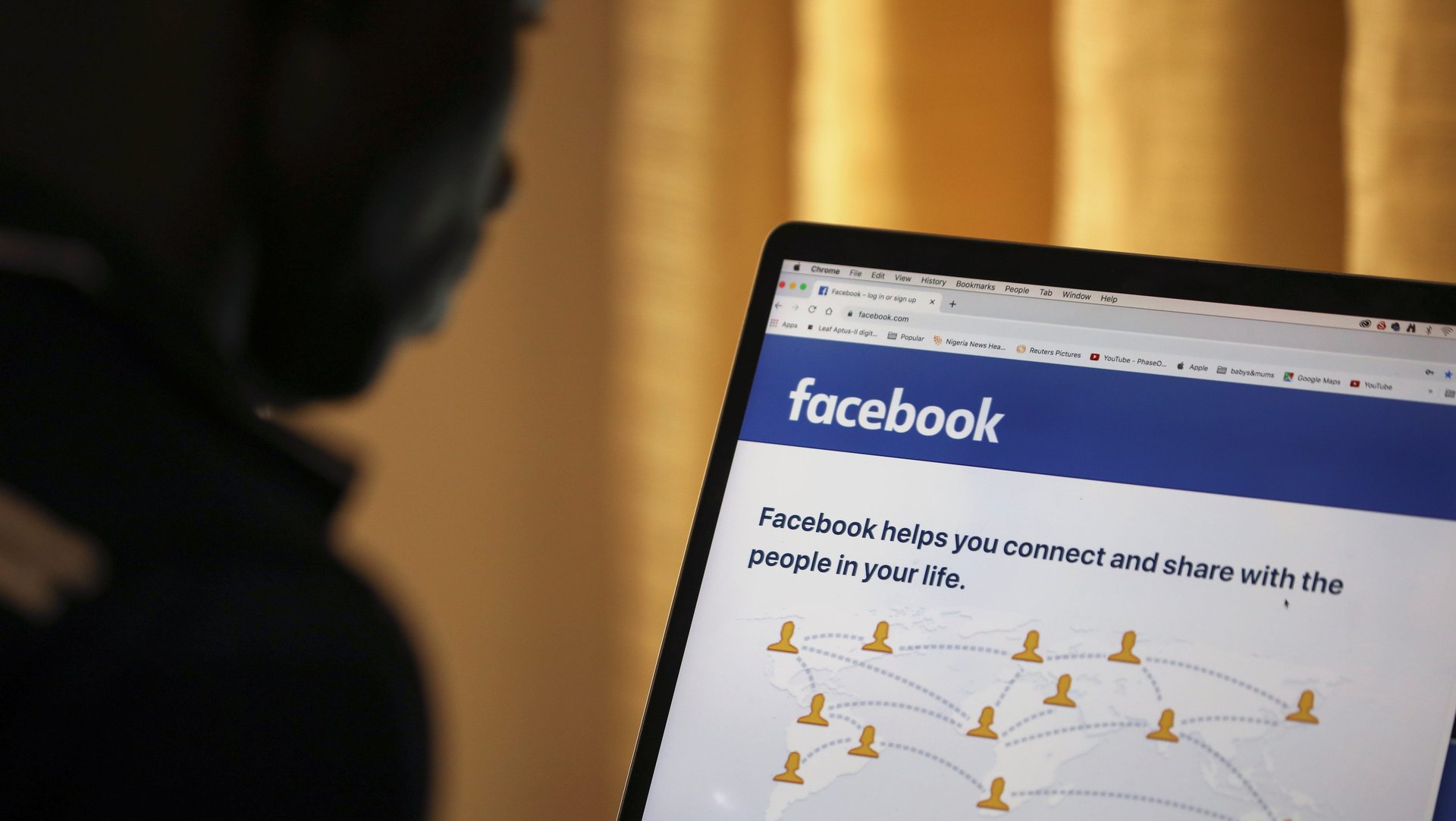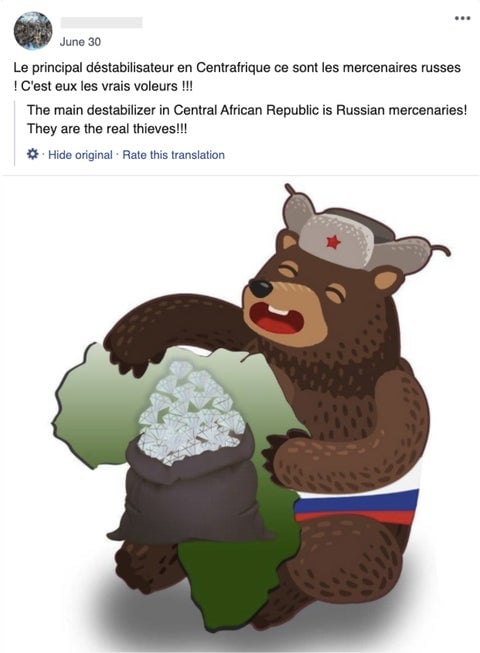Russian and French misinformation trolls have targeted African voters on Facebook
As world powers tussle to influence politics and elections in Africa, they have taken to social media, targeting African users with misleading information.


As world powers tussle to influence politics and elections in Africa, they have taken to social media, targeting African users with misleading information.
Facebook says it has pulled down more than 500 accounts, pages, and groups from Facebook and Instagram originating from Russia and France targeting 13 African countries and in the Middle East.
The African countries targeted were in West and North Africa, primarily the Central African Republic (CAR), Tunisia, Libya, and Mali, and to a lesser extent Niger, Burkina Faso, Algeria, Cote d’Ivoire and Chad.
Facebook categorized the foreign interference as coordinated inauthentic behavior on behalf of a foreign or government entity.

In CAR, which will hold elections later this month, the French- and Russian-linked disinformation groups engaged “with one another, including by befriending, commenting, and criticizing the opposing side for being fake”.
With posts mainly in French and Arabic, they covered “news and current events including France’s policies in Francophone Africa, claims of potential Russian interference in the upcoming election in the CAR, supportive commentary about French military, and criticism of Russia’s involvement in CAR”, according to Facebook.
Facebook notes that the Russian-linked disinformation groups used fake accounts to pose as locals in their targeted countries. They would then create misleading content and distribute via social media platforms.
Even though people behind some of the French-linked disinformation accounts tried to conceal their identities and coordination, Facebook’s investigations found links to individuals associated with French military.

This is not the first time that foreign countries use misinformation on social media to target African users as in 2019 Facebook pulled down Russian-associated accounts spreading misleading information to influence elections and politics. Facebook believes the recent Russian syndicates are the same with the 2019 ones that are just trying to rebuild their operations.
The social media giant notes the Russian groups had links to the individuals associated with Internet Research Agency’s (IRA) an organization known for online misinformation run by Russian businessman Yevgeniy Prigozhin, who was accused of meddling in the US 2016 elections and indicted by the US justice department.
In recent years, there has been a renewed scramble by world powers to secure economic and political influence while building business opportunities in Africa. The Chinese have been dominating trade with the continent for the past two decades and major economies including Russia, France, Turkey, India, and Japan are all keen to have deepen economic ties.
But the Facebook revelations come as many governments in Africa are quietly making it difficult for social media users to freely express themselves or question their leaders online through crafting and implementing heavy-handed regulations that require users to register with regulators and to compel bloggers and content creators to pay exorbitant taxes in some instances.
As well as Lesotho and Zimbabwe, countries including Uganda, Tanzania, and Burkina Faso, are among those who have joined a growing trend of heavy-handed regulatory oversight of social media users. This has become particularly crucial around elections in these countries.
Ironically, news like Facebook’s latest announcements could be seen by some government to justify social media blocks or internet shutdowns ahead of elections.